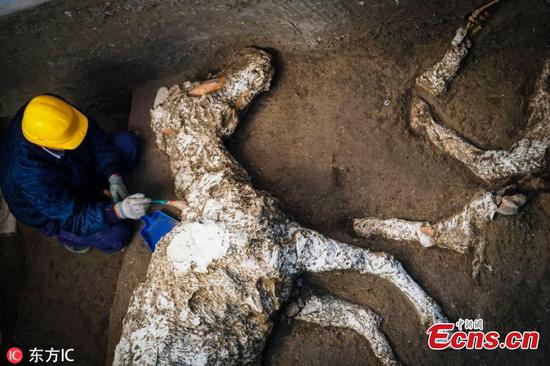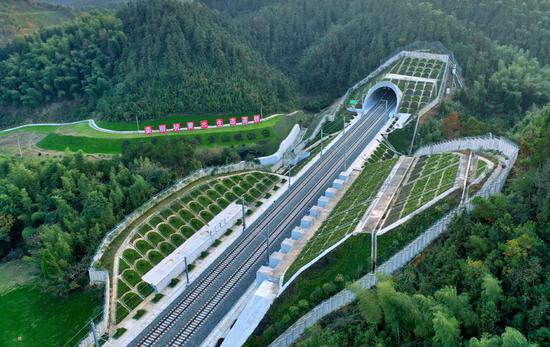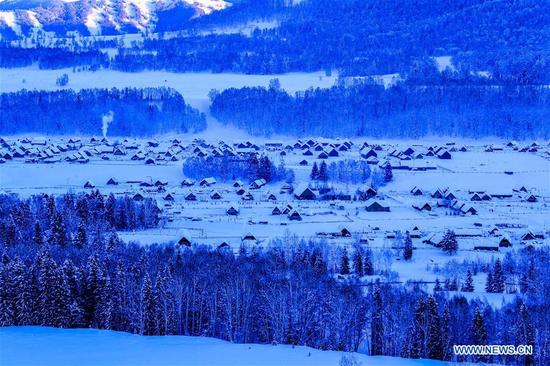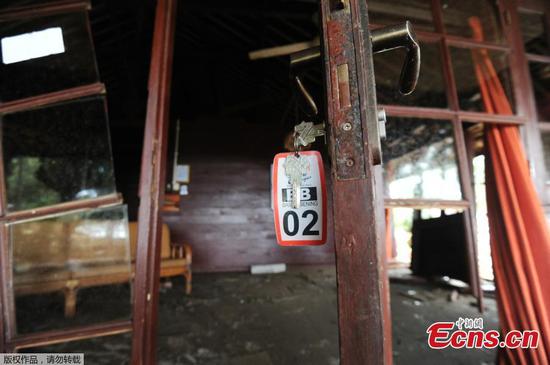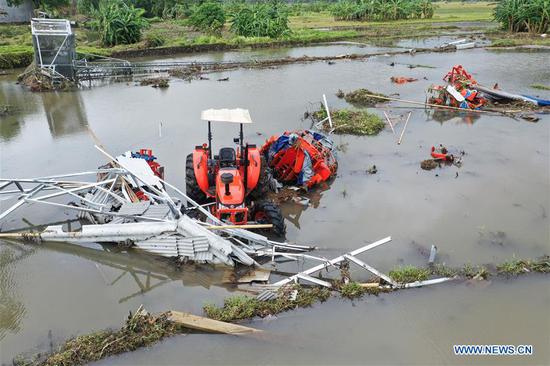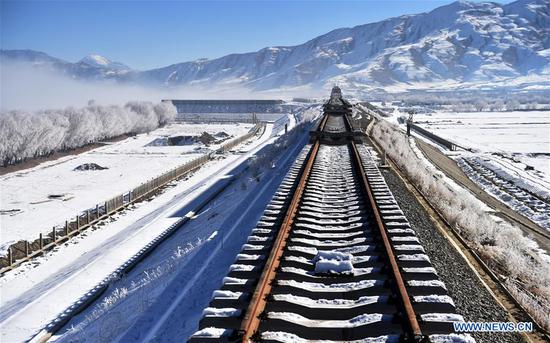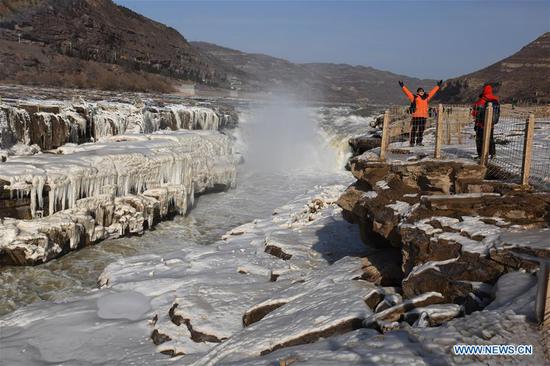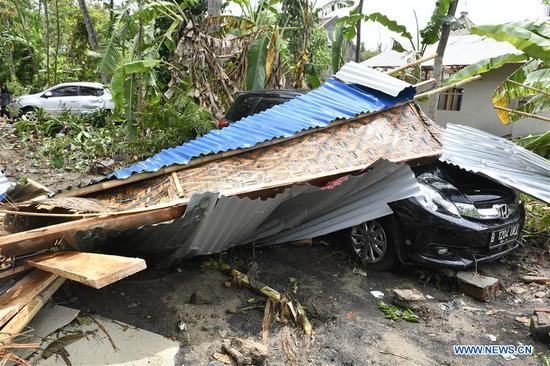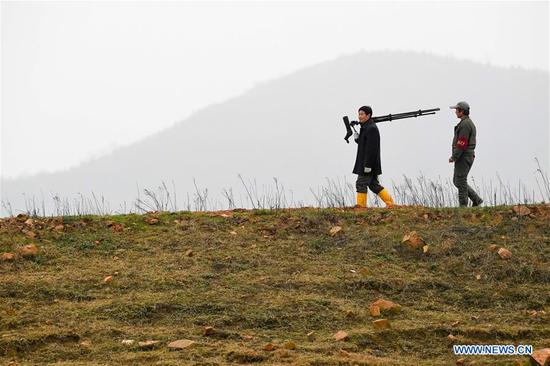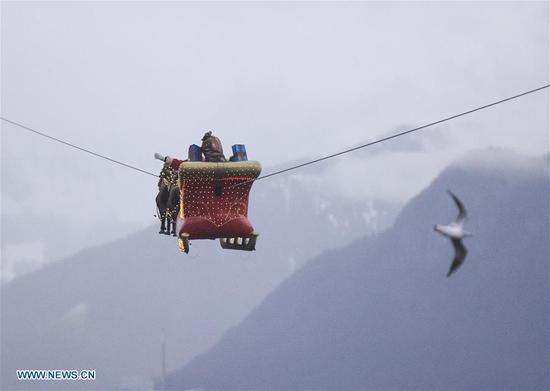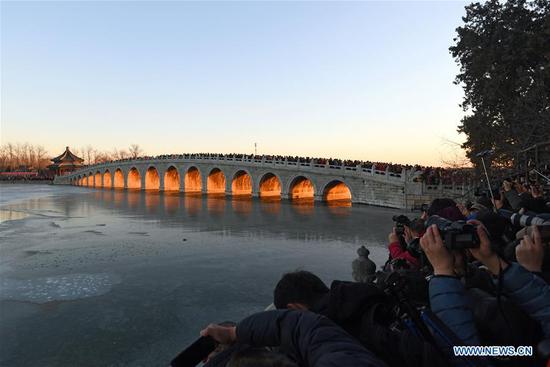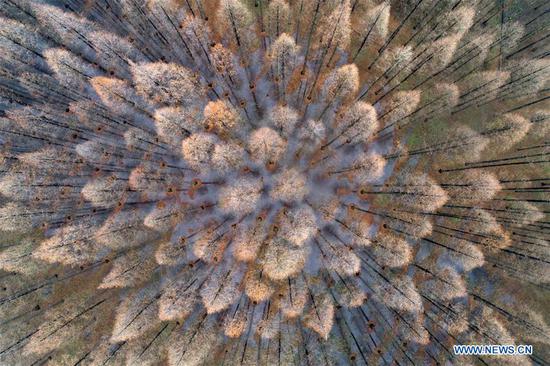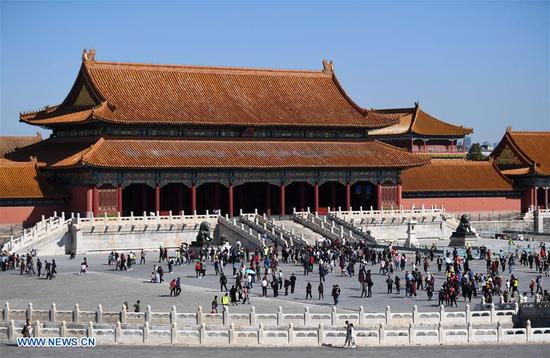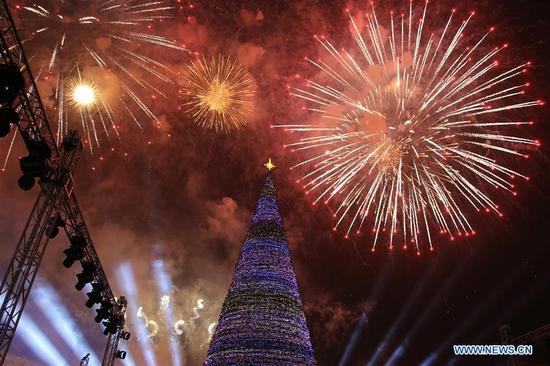Matthew Hurlburt and his family from Arlington, Virginia were at a loss standing in front of the National Christmas Tree near the White House, as they were told to leave the area just after walking "two steps" in it.
"It's a bit of a bummer," Hurlburt said.
Hurlburt, along with his wife and three kids, is among the hundreds of visitors that were drawn to the famed site Monday morning only to find that they couldn't walk up to the tree -- a decades-long symbol of the festive season -- because of "a lapse in federal appropriations," as stated in a sign.
"We come here every year for a Christmas Eve and see the Christmas tree," Hurlburt told Xinhua, adding that he considered it a time-honored family tradition. "We're going to walk around. We'll come back and hopefully they'll be back ready for us."
The popular site was closed as a result of a partial federal government shutdown that began midnight Friday, triggered by the White House and Congress' failed attempts to resolve a budget impasse over the funding of the president's promised U.S.-Mexico border wall.
The area opened for a couple of minutes Monday morning before visitors were asked to exit. A staff member told Xinhua that there are some "wire" problem, and they will reopen the site after it's fixed.
The prospect of reopening was made possible by the nonprofit National Park Foundation, which announced before noon Monday that it will keep the park open and lit through Jan. 1, a move that could come as a relief for numerous Americans amid a political standoff.
But what private donations can do is limited. The shutdown, the third of the year, closed about a quarter of federal offices, affecting nine of 15 Cabinet-level U.S. departments and dozens of agencies, including the departments of Homeland Security, Transportation and Justice.
"I just feel bad for those federal employees who can't get paid," Hurlburt said. "I hope not. Especially this time of year, I am sure people need that money."
More than 800,000 federal employees would have to go to work without pay or will be furloughed as a result of the shutdown, U.S. media reported.
Hundreds of people have taken to Twitter to discuss the effects of the shutdown with the hashtag #ShutdownStories.
Taylor Futch said her husband, a park ranger in the Great Smoky Mountains National Park, had to sign his furlough papers when his mortgage was due and with Christmas around the corner. "We have a four-year-old and a four-month-old, and we don't know when his next check will come."
A security guard at the National Gallery, who declined to be named, told Xinhua that he had to go home soon if the shutdown extends into January. "What can you do?" he shrugged.
What the government shutdown really means is that "you're denying services not only for residents and visitors to Washington D.C., but to people who work for the government and who depend on the government for a paycheck," David Leblang from Charlottesville, Virginia told Xinhua.
Leblang, who had planned to visit the National Archive with his family, expressed his disappointment over the closure. Calling the shutdown "ridiculous," he said "it shows a lack of leadership."
During the past week, the U.S. House and Senate failed to break the deadlock over the funding of the president's demand for the 5-billion-U.S.-dollar border wall, a centerpiece of Trump's 2016 campaign. The Democrats, who have long been opposed to building a physical wall, were only willing to approve funding of 1.3 billion dollars to enhance border security.
Leblang told Xinhua he doesn't think a border wall is the solution to illegal immigration. "This is a political stunt," he said. "It's not designed to do anything other than appeal to a set of constituents."
A retired bookkeeper from Maine, who declined to reveal his name, told Xinhua that he strongly opposes to the idea of a border wall. "Don't do that. If people want to come here, and work like us, and pay taxes. I have no problem with that," he said, addressing himself as a Democrat.
Local visitor Darin Imbriaco, meanwhile, said he is "torn" over the issue. "I think that we do need better border protection, but I don't know if that's necessarily the answer," he told Xinhua.
Imbriaco said that he blamed the White House for the shutdown. "Every time one of these comes up, I always think the White House should be more flexible," he said. "Just make a concession."
The shutdown is "mostly just an annoyance to me," Imbriaco said, adding that it hasn't impacted his trip much, as the Smithsonian museums are still open. Officials announced Friday that the 19 museums in Washington D.C. and New York City will not close in the event of the shutdown over the holiday period, and they "will reevaluate the situation" after Jan. 1.
Imbriaco said he believes it won't be long before the impasse is resolved. "I think this happens every few years. When people with stiffened jaws look at each other in the eyes. And they're just staring each other down for now. They will find a compromise," he said.
Leblang, however, expects not much movement until next year. "I think we'll see more and more and more things shut down and I think at a certain point in time, one side will fold."
Leblang warned that the shutdown might not end just because the Democrats take control of the House in January, given the "super majority" needed in the Republican-held Senate to override a presidential veto.
The U.S. Senate will return on Thursday and consider business if a deal is reached on government funding. White House Office of Management and Budget Director Mick Mulvaney said on Sunday he doesn't think things are going to move very quickly for the next couple of days.
"We'll have to just wait and see which side will decide that it's time to do something right for the American people," Leblang said.










